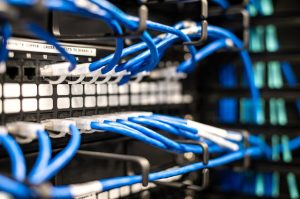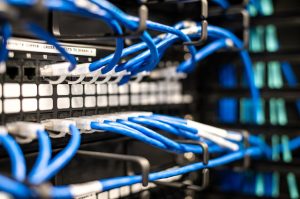Fiber vs. Satellite: The Battle for Internet Dominance in Africa

Fiber vs. Satellite: The Battle for Internet Dominance in Africa
Fiber vs. Satellite: The Battle for Internet Dominance in Africa Fiber internet
The battle for internet dominance in Africa is heating up, with fiber and satellite internet competing for supremacy. In this article, we will explore the pros and cons of each technology and examine the current state of the market.
Fiber internet is widely considered the gold standard of internet connectivity, offering fast speeds, low latency, and high reliability. Fiber optic cables use light to transmit data, allowing for speeds of up to 100 Gbps. This makes fiber ideal for applications that require high bandwidth, such as video streaming, online gaming, and cloud computing.
In Africa, fiber internet is becoming increasingly popular, with many countries investing heavily in fiber infrastructure. For example, South Africa’s fiber network now covers over 50% of the population, with speeds of up to 1 Gbps available in many areas. Similarly, Kenya’s fiber network has expanded rapidly in recent years, with speeds of up to 100 Mbps available in many parts of the country.
Satellite Internet: A Viable Alternative
Satellite internet, on the other hand, uses a network of satellites in orbit around the Earth to provide internet connectivity. This technology is particularly useful in areas where fiber infrastructure is limited or non-existent, such as rural or remote areas. Satellite internet can provide speeds of up to 100 Mbps, although latency can be higher than fiber due to the distance the signal must travel.
In Africa, satellite internet is playing a crucial role in bridging the digital divide. Many countries are using satellite internet to connect rural and remote areas, where fiber infrastructure is often lacking. For example, the African Telecommunications Union has launched a satellite-based initiative to provide internet connectivity to rural areas across the continent.
Comparison of Fiber and Satellite Internet
So, how do fiber and satellite internet compare in terms of cost, speed, and reliability? Fiber internet is generally more expensive to install and maintain than satellite internet, particularly in areas where fiber infrastructure is limited. However, fiber internet offers faster speeds and lower latency than satellite internet, making it ideal for applications that require high bandwidth.
Satellite internet, on the other hand, is often less expensive to install and maintain than fiber internet, particularly in areas where fiber infrastructure is limited. However, satellite internet can be affected by weather conditions and other forms of interference, which can impact reliability.
Conclusion
In conclusion, the battle for internet dominance in Africa is heating up, with fiber and satellite internet competing for supremacy. While fiber internet offers faster speeds and lower latency, satellite internet is playing a crucial role in bridging the digital divide in rural and remote areas. As the demand for internet connectivity continues to grow in Africa, it is likely that both fiber and satellite internet will play important roles in meeting this demand.





